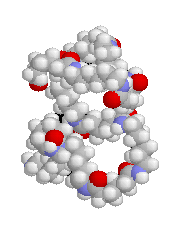Custom Polymers: Tailored Solutions for Unique Applications
Custom Polymers: Tailored Solutions for Unique Applications
Blog Article
Checking Out the Varied Applications and Advantages of Polymers in Different Industries
Polymers, with their varied variety of properties and performances, have actually become vital in different industries, each gaining distinct advantages from their application. Polymers. From enhancing safety and efficiency in the automobile sector to transforming clinical devices in the healthcare industry, polymers play a critical function. In addition, their eco-friendly nature is changing the landscape of sustainability techniques. As we explore the midsts of polymers in electronic devices, we uncover sophisticated innovations, while their architectural stability transforms the realm of building and construction and infrastructure. The prevalent influence of polymers throughout sectors is a testimony to their versatility and adaptability, forming the future of countless industries.
Automotive Sector Applications
Polymers play a pivotal function in enhancing the performance and durability of different parts within the auto sector. These flexible materials are extensively utilized in the production of different parts, varying from interior elements to under-the-hood applications. One noticeable use of polymers in the automotive market remains in the production of lightweight parts. By replacing standard metal parts with polymer-based choices, cars can accomplish better fuel effectiveness without jeopardizing on toughness or safety.

Medical Care Industry Advantages
In various healthcare applications, the advantages of utilizing polymers are commonly acknowledged for their diverse series of valuable residential properties. Polymers play a crucial role in the healthcare industry due to their flexibility, biocompatibility, and cost-effectiveness. One of the primary advantages of polymers in healthcare is their ability to be tailored to specific needs, such as adaptability, resilience, and biodegradability, making them perfect for a variety of medical applications.
Polymer-based materials are extensively used in clinical gadgets, such as catheters, implants, prosthetics, and medication shipment systems, due to their biocompatibility and ability to imitate natural cells. These materials can minimize the risk of allergies or rejections, improving person security and results. Furthermore, polymers are light-weight, making them ideal for wearable clinical gadgets and making sure individual comfort.
Moreover, polymers make it possible for the advancement of cutting-edge treatment approaches, such as hydrogels for cells design and nanocomposites for targeted medication distribution. Their simplicity of handling and sterilization makes them necessary for keeping high standards of health in health care setups. In Read Full Report general, the varied benefits of polymers contribute dramatically to advancements in medical innovation and person care.
Environmental Benefits of Polymers

Additionally, polymers can contribute to energy cost savings as a result of their light-weight nature. In sectors such as transport, light-weight polymer materials can help decrease fuel usage and greenhouse gas discharges. In addition, polymers can make it possible for the development of energy-efficient products such as insulation products that improve energy conservation in buildings.
Furthermore, polymers play a vital duty in lowering water air pollution. The usage of polymer-based filtering systems can successfully eliminate contaminants and pollutants from wastewater, protecting water resources and ecosystems. Overall, the environmental benefits of polymers make them valuable assets in advertising sustainability and environmentally friendly practices throughout numerous markets.
Polymers in Electronics and Modern Technology
Taking into consideration the boosting demand for review innovative and lasting options in contemporary markets, the integration of advanced polymer modern technologies in the world of electronics and innovation has become a crucial approach for driving effectiveness and performance. Polymers have revolutionized the electronic devices industry by making it possible for the production of lighter, more versatile, and sturdy electronic gadgets. From smartphones to clinical tools, polymers play a critical role in improving product style and functionality.
One significant benefit of polymers in electronics is their protecting residential properties, which help secure delicate electronic parts from environmental aspects and electric interference. Furthermore, polymers are essential in the development of versatile displays, wearable innovation, and published electronic devices, providing limitless opportunities for creating wise and interconnected tools.
Additionally, using polymers in electronic product packaging has actually resulted in innovations in miniaturization and thermal management, enhancing the general performance and dependability of digital systems. As technology remains to progress, the convenience and adaptability of polymers will definitely drive better development in the electronics market, shaping the future of innovation.
Duty of Polymers in Building And Construction and Framework
The integration of advanced polymer materials in construction and infrastructure jobs has reinvented the way structures are designed and built in modern times. Polymers provide various advantages in the building market because of their flexibility, toughness, and cost-effectiveness. One crucial function of polymers in building is their use in coatings article source and sealers, supplying security against environmental variables such as dampness, UV radiation, and rust. Furthermore, polymers are utilized in the manufacturing of light-weight and high-strength composite products, improving the architectural stability of buildings while reducing total weight.
In addition, polymers play an important duty in lasting construction methods by allowing the growth of energy-efficient frameworks. Insulating materials made from polymers assist control interior temperature levels, reducing the need for heating and cooling systems and eventually decreasing power intake - Polymers.
Conclusion
To conclude, polymers play a critical function in different sectors such as auto, healthcare, environmental, electronics, and construction. Their versatile properties make them valuable in creating innovative solutions and products. From enhancing fuel performance in vehicles to boosting clinical gadgets, polymers supply numerous advantages. Furthermore, their influence on reducing waste and advertising sustainability highlights their relevance in modern applications. The widespread use polymers shows their substantial payment to advancing technology and enhancing lifestyle.
Report this page